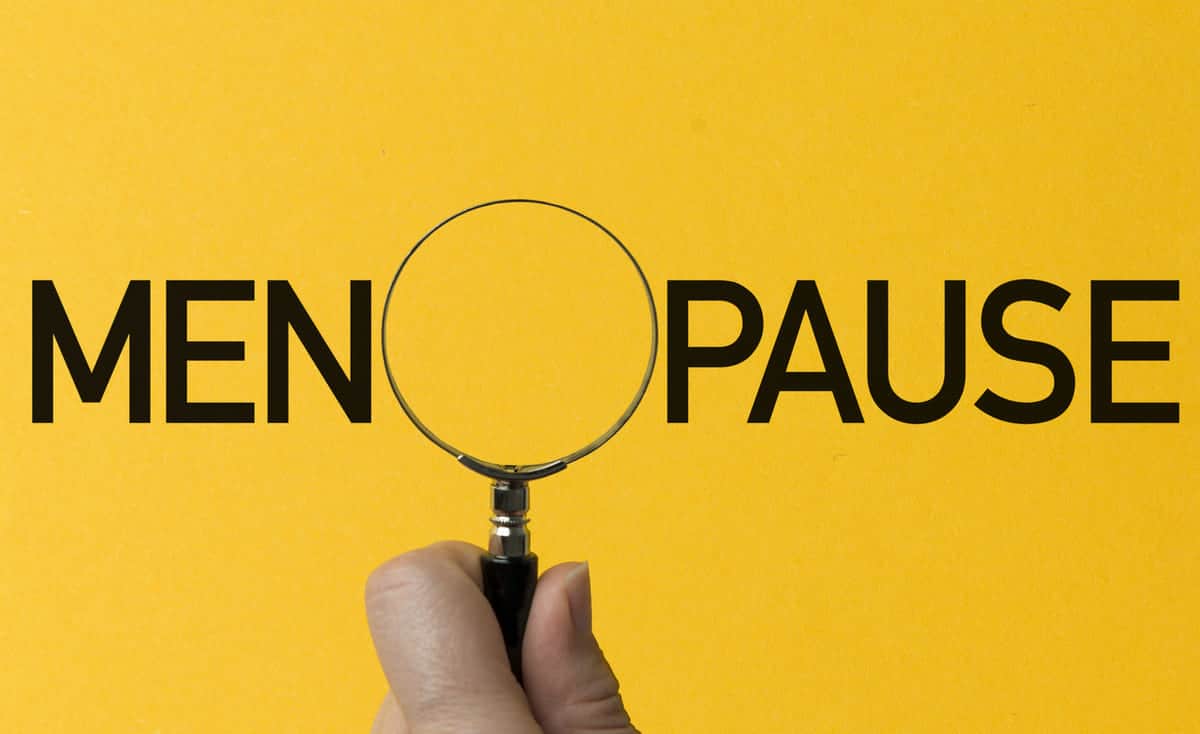This article was done in partnership with Pfizer Inc.
If you ask a woman in her 30s or early 40s what menopause means to her, you’re bound to hear various answers. Some see menopause as a ticking clock, perhaps even the horizon of their fertile years. Others will think back on the experiences of the women in their family (some good, some bad) and mention certain symptoms that they remember hearing about.
Popular culture’s depiction of menopause is often pretty stereotypical. It’s often shown as grey-haired grandmothers enjoying retirement in their late 60s and 70s. However, these show little resemblance to the working-age women in their 30s, 40s, and early 50s who may be experiencing their first perimenopausal symptoms. This can be confusing for women that start feeling the first twinges of this life transition. That’s why it’s important to discuss the reality of menopause and make it better understood.
Breaking Down the Reality of Menopause

Let’s start with three key points about menopause that can help clarify the who, what, when, where, and why of it.
- Perimenopause is the period of change from having regular periods, leading up to menopause.1
- The duration of perimenopause is variable but can last between 2 and 10 years.2
- Menopause is defined as 12 months without a menstrual period, which happens at an average age of around 51 years old in the US. 3,4
The reality of menopause is that it varies quite a lot from one woman to the next. Some may have symptoms for a few months or several years before their last period.4,5 Other women may have symptoms that start in their 30s or early 40s and continue for years, while some don’t have any symptoms until they are in their 50s. Finally, there are some that have no symptoms at all. Pretty much runs the gamut, doesn’t it?
When talking to patients in her menopause clinic, Shelagh Larson, a Women’s Health Nurse Practitioner, uses the analogy, “If you’re going down the highway of reproductive life, menopause is when you finally get off on an exit. You don’t just get off the highway, there is actually a transition, an exit ramp. And so, I describe the perimenopause as going off on the exit ramp. And that once you reach the full year without a period, you’re now coasting the country road.”
Menopausal Symptoms

Whenever it happens, perimenopause is a time of great hormonal fluctuations. 1,5,6 As Mary Beth Peterson, MD, a leading gynecologist and international expert on menopause, explains, “early in perimenopause, the ovaries are still functioning, but not quite as well. Follicle-stimulating hormone (FSH) has to work harder to stimulate the ovary. Sometimes the ovaries are overstimulated, in which case too much estrogen is released, and periods may come closer together. Periods may be heavier, with more bloating and breast tenderness. As perimenopause progresses, the egg reserve gets lower, and periods may become less regular and lighter. Women may experience skipped periods and hot flashes.” Women might also experience weight gain during menopause because of hormonal changes.7
One other disruptive symptom that can occur is interrupted sleep, which may have a substantial impact on well-being.5,8 Dr. Peterson explains: “If you’re sleepy, you tend to not function as well. Your brain seems a little foggy. So, then you may start craving energy foods, and you can gain weight. And it can just start this whole cycle.”
We spoke to a woman named Jennifer* (her name has been changed for privacy reasons) about the reality of menopause, and she said that she was 33 when her menstrual cycle changes started. “I started having all these weird symptoms…I would have a menstrual cycle and it would start one day and stop the next day. I had hot flashes and then they came to a screeching halt, and I didn’t have any more for years. At the time I didn’t connect them with my irregular cycle.”
In her early 40s, these symptoms not only reappeared but also intensified. “I would have a menstrual cycle, and it would stay on for a whole month. At the same time, my hot flashes got worse, and I had night sweats. I would have to get up and change the sheets because the bed was soaking wet. Things really changed, especially with my emotions and not wanting to have sex.”
One of the first steps that a woman must take to manage perimenopause/ menopause is to make the connection between the symptom and the cause. This can be difficult for both women and healthcare providers because the symptoms vary so widely in intensity and impact and can change over time. Dr. Peterson and Shelagh have found that hot flashes are common reasons for women to seek medical help. However, other symptoms, including acne, body aches and pains, and sleep issues, are often not recognized as possibly being related to menopause. This may mean that women are seeking help from different providers to manage different symptoms.
What You Should Know About Perimenopause/Menopause

Both Dr. Peterson and Shelagh Larson are experienced in identifying, discussing, and managing symptoms. However, most women see an OB/GYN or family doctor with no specific interest in menopause, so it’s more difficult to understand the changes that might be occurring. Because we might not all be getting the pertinent information we need regarding this time in our lives, we had Dr. Peterson and Shelagh break down four key messages they would like all women to hear about the reality of menopause.
- Perimenopause/menopause is normal.
- There are options.
- It’s OK to talk about sex.
- It’s time to focus on your health and well-being.
1. Perimenopause/menopause is normal
Women should know what to expect in different menopausal phases. They need to understand both what’s normal and what’s not normal, with a special emphasis on bleeding patterns. For some women, it’s enough just to know that what they’re experiencing is normal. Shelagh recalls a consultation with one patient who broke down into tears saying, “I thought I was going crazy. I just really thought there was something wrong with me.” Understanding what’s going on in our bodies is a key component to aging gracefully.
2. There are Options
Not all women need treatment for their symptoms, but it can be helpful for them to know that different options are available. For example, Dr. Peterson says to her patients, “This may not be bothering you now, but it’s not uncommon for this to happen down the line. And if that happens, there are these things that we can do.” According to Dr. Peterson, “Patients may be told they are going through menopause and think they just have to live with it. And depending on the symptoms, that’s not necessarily the case.”
Fortunately, the options for treating menopausal symptoms are increasing. Dr. Peterson says, “We’ve learned so much about different delivery methods and types of hormone therapy. And there are nonpharmaceutical options that may help some women…We’ve got lots of options we can try.”
Shelagh would like to encourage more colleagues to take a special interest in menopause, attend lectures, read papers, and learn about the advances that have been made in the past 10 to 15 years in this field.
3. It’s OK to talk about sex
When it comes to intimate relationships and a woman’s self-esteem, it’s not surprising that they can be impacted by mood changes, lack of sexual desire, pain during intercourse, urinary leakage, sweating, and vaginal dryness. However, these are issues women may not be accustomed to discussing openly, even with their healthcare provider, and that can be a problem.
Shelagh believes conversations about sex are just as important as discussing other burdensome symptoms like hot flashes. “It’s important to discuss sex and vaginal health openly,” she says. “I discuss vaginal health as if it’s just like breathing and eating. Does it have any discharge? Is it wet? How do you clean it?”
Shelagh also says “A lot of women haven’t ever had a talk with their mother or anybody else about sex. And so we talk about touching yourself, about masturbation, and about using adult toys. We also talk about ways to reconnect with their partner.”
If women find it difficult to discuss the sexual symptoms of menopause, this can cause problems in their relationships. Partners may feel excluded, upset, or confused about why their partner no longer wants to have sex. Jennifer remembers what a big impact the loss of sexual desire had on her relationship with her husband, “Sex was just like a no. I’m not interested. Don’t touch me…Let’s not even talk about it. I felt like there was a kind of a wedge between the two of us and he didn’t understand… I think that it played a part in me being depressed at times.”
Shelagh finds it useful to invite women to bring their partners into her clinics and discuss sexual issues as a couple: “I’ve had many couples through the years that were on the verge of divorce…The conversations not only brought them together but made a stronger relationship.”
Dr. Peterson also hears about the impact of low sexual desire on relationships in her menopause clinic. “You can’t control that desire feeling. Many people are wanting to have sex for their partner. The women with supportive partners are motivated to find ways to make sex more comfortable.”
It’s important to realize that some healthcare providers may not be comfortable discussing sex openly with a patient. In this case, Shelagh suggests using written information such as brochures as a starting point for the conversation. Questionnaires on sexual health issues can also be given to the patient before they come to the appointment so they can prepare.
4. It’s time to focus on your health and wellbeing
Women often take on a primary caring role in mid-life, looking after children or older parents. This can lead to putting their own well-being down the priority order. Dr. Peterson and Shelagh think that perimenopause/menopause is a time when women need to put themselves first – wherever possible – focusing on their physical health, mental health, diet, exercise, and sleep hygiene.
During menopause, Jennifer was advised to see a therapist, which helped her “unload and be able to have somebody listen to me with all the intimate things that were happening between me and my husband.” She has learned that stress is a major trigger for her menopausal symptoms, and says, “any little emotional thing can bring on huge hot flashes. If I’m sad, if somebody makes me mad, or whatever, it can bring on a hot flash, I can just feel like I’m about to evaporate.”
Dr. Peterson thinks a positive attitude can help. For example: “You don’t have to accept that you’ll gain weight. You might need to change how you exercise as you get older.”
Shelagh advises some women in her menopause clinics to adjust the type of exercise they do. She states that “Intense exercise in menopause can overload the body with the stress hormone cortisol, which can impair glucose control and slow metabolism.” Some patients have a tendency to push themselves too hard. Shelagh says to these patients, “I need you to do more meditation. Breathe, give your body a rest… and just sit and meditate.”
Embrace the Next Phase of Life
Historically speaking, women that lived in previous generations experienced menopause towards the end of life. However, with an increase in life expectancy, women can now expect to live for decades post-menopause. Dr. Peterson explains, “Now we’re only at halftime. We’ve got a whole other part of our lives to live…It’s an opportunity to reset and rethink.”
Shelagh tells her patients: “This next phase is all about you. The first part was you growing, the second part was you raising kids and now it’s time for you to be liberated and not have to worry about periods and pregnancy.”
This rings true for Jennifer. Although she still sometimes has hot flashes and mood swings at age 55, she is optimistic about the next phase of life. “I feel like things are beginning to level out.” She is excited about a new direction she wants to pursue in her career and has developed a more open and supportive relationship with her husband. “I think he understands a little bit better now because he’s getting older himself… at least he is nicer about it.”
Empower the Next Generation

Recently, there’s been a growing perception that conversations around the reality of menopause have been improving, including an increasing amount of information in the media and online. On top of this, the social stigma is gradually lifting so more women feel comfortable talking about menopause with their friends, partners, and children. Dr. Peterson thinks this is really important, stating, “Women should talk about menopause with their daughters… if your mom had really bad hot flashes, you may be more likely to have really bad hot flashes.”
“Nobody knows my body better than I do,” says Jennifer. “When my body started changing going into menopause, I didn’t really understand. I feel like it’s important to talk to your healthcare providers and to ask questions so that you can be educated and understand the process.”
Shelagh agrees, “the most important thing we can do is educate, educate, educate…if we get more podcasts, more providers getting out there talking about sex and hot flashes and what’s normal, then it’s no longer shameful to go through menopause.”
To learn more about menopause, visit menopauseunmuted.com to listen to a podcast sponsored by Pfizer.
Article Contributors:
Mary Beth Peterson, MD, is a leading gynecologist and international expert on menopause. Dr. Peterson has been the clinical director of a menopause and perimenopause clinic at the University of Pittsburgh, treating women for over 20 years and presenting at global congresses in women’s health.
Shelagh Larson, APRN, DNP, NCMP, WHNP-BC, is a Women’s Health Nurse Practitioner. She has extensive clinical experience and over 30 years in practice. She also teaches, with a special interest in addressing communication challenges in menopause consultations.
Jennifer*, now age 55 Experienced her first perimenopausal symptoms – irregular periods – in her early 30s, which intensified in her early 40s. She has lived with menopausal symptoms for almost 20 years, most notably hot flashes and mood changes, which have impacted her personal relationships and job satisfaction. *Her name has been changed for this article.
References
- Mayo Clinic. Perimenopause [website]. Available at: https://www.mayoclinic.org/diseases[1]conditions/perimenopause/symptoms-causes/syc-20354666. Accessed 12 January 2022.
- John Hopkins Medicine Website accessed at https://www.hopkinsmedicine.org/health/conditions-and-diseases/perimenopause
- Mayo Clinic. Menopause [website]. Available at: https://www.mayoclinic.org/diseases-conditions/menopause/symptoms-causes/ syc-20353397. Accessed 12 January 2022.
- El Khoudary SR, Greendale G, Crawford SL, et al. The menopause transition and women’s health at midlife: a progress report from the Study of Women’s Health Across the Nation (SWAN). Menopause. 2019;26(10):1213-1227. doi:10.1097/GME.0000000000001424.
- Delamater L, Santoro N. Management of the Perimenopause. Clin Obstet Gynecol. 2018;61(3):419-432. doi:10.1097/GRF.0000000000000389.
- Perelman School of Medicine. Menopause [website]. Available at: https://www.med.upenn.edu/womenswellness/menopause.html. Accessed 12 January 2022.
- Moccia P, Belda-Montesinos R, Monllor-Tormos A, Chedraui P, Cano A. Body weight and fat mass across the menopausal transition: hormonal modulators. Gynecol Endocrinol. 2021 Dec 13:1-6. doi: 10.1080/09513590.2021.2004395. Epub ahead of print.
- English M, Stoykova B, Slota C, Doward L, Siddiqui E, Crawford R, DiBenedetti D. Qualitative study: burden of menopause-associated vasomotor symptoms (VMS) and validation of PROMIS Sleep Disturbance and Sleep-Related Impairment measures for assessment of VMS impact on sleep. J Patient Rep Outcomes. 2021 Apr 26;5(1):37. doi: 10.1186/s41687-021-00289-y.








